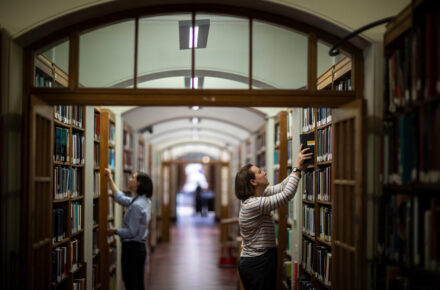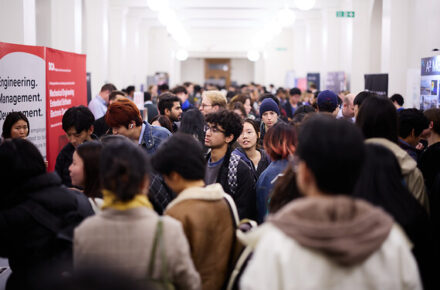Trigger warning: mentions and graphic details of r*pe and sexual assault
Everyone has drunk sex at university, right? That’s what student life is all about!
Most testimonies of rape feature a common element: justification. The survivor attempts to explain how and why they found themselves in that precarious situation in the first place. They repeat sentences like, “I was only there because I felt safe” or, “I understand how it was irresponsible to drink so much” or, “I wasn’t even wearing anything revealing”. Because of an inescapable culture of victim-blaming surrounding us, women constantly feel the need to emphasise that they did everything they could to avoid being harassed or assaulted. They are told to alter their behaviour so they can always be alert.
In my first year at UCL, last term, I was raped.
That night, my friend, Camilla, and I were out at a freshers’ clubbing event. We were having a great time when we left the club; we decided to go back to another friend’s flat for the night. There were a group of us heading there – an equal ratio of women to men. I “felt safe”. The energy felt humorous and fun.
One of the men in that group, a UoL student, Hugo, was constantly trying to flirt with me. But, I was trying to avoid him, hinting that I was not interested. I did it as kindly and calmly as I could; I did not want to come off as “rude”.
When we finally reached the flat, Hugo sat next to me on the couch and started to touch my arms and legs, without my consent. He then proceeded to say, “I don’t want this to come off as weird, but I really want to fuck you”. Repulsed by the indecency of his speech, and still not interested, I decided to be direct and responded with, “I am not interested in having sex with you at all”. He said he respected that and left the couch.
Later in the night, I was feeling drunk and tired. I wanted to go home but Camilla did not want to leave yet. I did not want to leave her alone here so I decided to nap on the couch. Shortly after, I was jolted awake by a man kissing my neck and placing his fingers inside my underwear; it was Hugo, who “respected” my lack of consent. Everyone else had moved to another room so we were the only ones on the couch.
As I was still half-asleep, I was slowly attempting to push him off me; yet, he resisted. He continued kissing me, insisting that “you make me so horny – you can’t just leave me like that”, suggesting that I “owe him something” due to my physical appearance.
I decided to kiss him back, hoping that he would be fulfilled and remove his hands from my body. It didn’t work.
When he tried to pin me down, I told him, “I really don’t want to have sex”. He continued to ignore me and started to force himself inside me, all while I struggled to push him away. After realising that I had no way to remove myself from this situation, I offered to perform oral sex on him so that he wouldn’t force me to have penetrative sex with him. He agreed, and after I finished, he left.
I got dressed, ran to find Camilla and we rushed out of the flat. As soon as we left, I told her, “ I think I just got sexually assaulted”.
For the next few days, I felt disgusted. Conflicting thoughts flooded my mind – I felt violated, but maybe it wasn’t rape, since I had consented eventually.
“I shouldn’t have gotten drunk around people that I do not know very well”.
“I shouldn’t have slept on a random couch while my friends were in a different room”.
“I should have said no some more times; maybe I wasn’t clear enough and he got confused”.
The only person I could place blame on was… me.
I discussed the incident with my therapist, and am still working through it with them. I also decided to report this to UCL, hoping for some closure. It was extremely important for me to share this experience, in hope that I could prevent another woman from being traumatised. When I submitted the report, I was proud of myself. I did not have any expectations; I did not have an aim. I did not even feel a distinct emotion – I was not particularly angry or sad about what happened. I just wanted to control what happened next.
Some working days after my report, I received an email from a member of the Report and Support team, specifically from the Crime Prevention and Personal Safety Advisor, detailing my options for accessing support. I set up a call with them, hoping to understand how to take my report further. They told me that because Hugo does not go to UCL, and because University of London (UoL) does not have a central reporting policy, UCL cannot take any disciplinary action.
I was then told that I can report this crime to the MET Police. Yet, they also clarified the police would not be able to take any action either, unless another individual files a report against Hugo. This implies that another woman would have to get assaulted, and would have to report it, for the Police to investigate the matter. That sense of control that I craved was lost now. I felt completely helpless – ironically, the very thing I was trying to prevent, another assault, became exactly what the authorities required to take action against the perpetrator.
Following this, I was also offered access to some other support services. Yet, after the initial inadequate response, I did not feel comfortable approaching them.
I had filed a report thinking that if intercollegiate study is so accessible to students at UCL and other UoL institutions, so would be reporting an intercollegiate sexual assault incident. But, I guess that is more complicated.
After this disappointing experience, I stopped talking about what happened. I thought that maybe my story was normal, that it was just a “bad moment”.
Rape is not normal. It is normalised.
The other day, my friend went out to a UCL event. She texted me that she was very drunk, and she remembered she kissed a man. She proceeded to share how uncomfortable she had felt, not knowing what his face looked like.
I was studying in the Student Centre a few months later when I overheard a group of male students commenting on how “annoying” it was that a woman was too intoxicated to consent, that she could not recollect having sex with one of these men.
Intoxication does not equal enthusiastic consent. I should not be scared to consume alcohol when I am out with my friends in the fear of another person’s hands being placed on my body without consent. It is time that we stop normalising taking advantage of people’s vulnerability.
This is not the “student life”. This is sexual harassment. This is rape.
This article appeared in CG Issue 82








